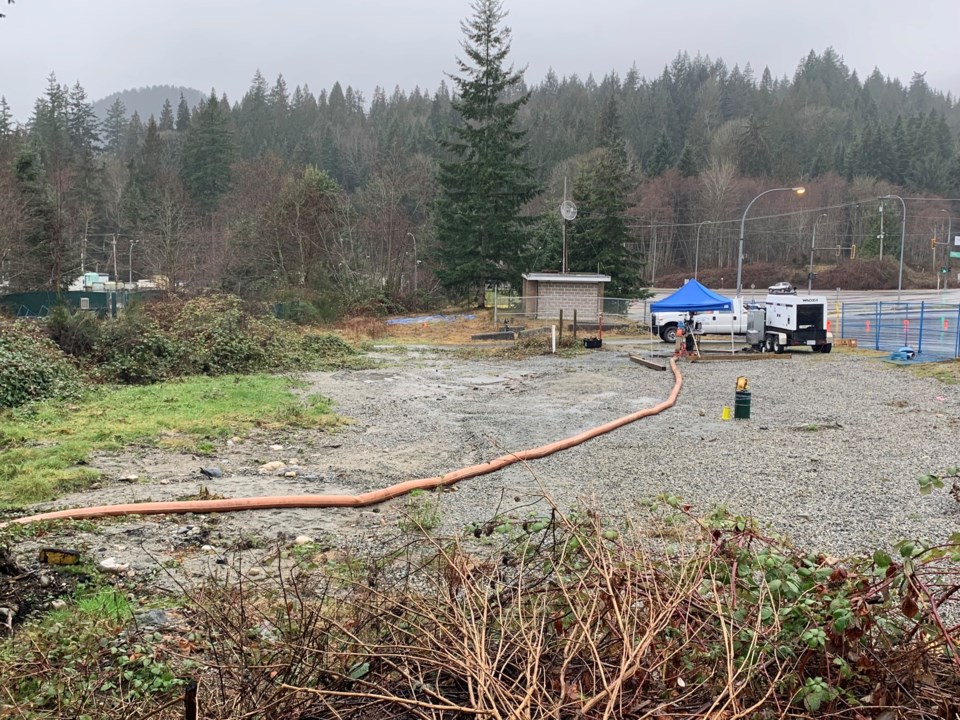The Sunshine Coast Regional District (SCRD) board is set to approve its 2024 budget Thursday – though the tax implications for the electorate are not yet clear.
Readings from introduction through adoption of the spending plan are slated to go before the Coast’s elected officials on Thursday, Feb. 22. As of the close of the business day Feb. 20, the budget bylaw’s details were not public.
Whenever the bylaw does appear in the meeting agenda at scrd.ca, it will not include provisions in 2024 to ask the electorate for approval to borrow up to $22.75 million for the Langdale well field development.
Chair Leonard Lee called a special meeting of the board on Feb. 20, to allow for further debate on the board’s Feb. 8 decision to defer consideration of any such AAP until into next year’s budget process. The call for another vote on that matter failed with only Area D (Roberts Creek) director Kelly Backs and director Justine Gabias of Area B (Halfmoon Bay) in support.
Impacts of an AAP in 2024 or later
Lee said he called for the reconsideration at the request of several directors who were seeking more information on the impacts of holding the AAP in 2024 as well as delaying that action to a future year.
Staff walked the board through the AAP process, highlighting that any borrowing approved through that method must be project specific and the approval is sought “up to” the stated amount. It was noted that should an AAP be held and be successful, if grant funding for the project comes in or if the work is completed requiring less than the total borrowing approved, the SCRD would only access the amount of funding needed. Corporate officer Sherry Reid also said that with a successful AAP, the SCRD has a five-year window in which to borrow the funds.
Another point shared by Reid was that if the board approved holding a Langdale well AAP and the process fails, the local government must wait until there is a substantive change to the project or the borrowing required before proceeding to a second AAP.
“Why are we in a hurry?” Was one of Area E director Donna McMahon’s questions about re-jigging the 2024 budget bylaw to include the AAP this year. Director of finance Tina Perreault outlined that going to AAP in 2024 would not impact the current year’s taxation rates as the $12,000 need to pay for the process would be covered from existing operations allocations. She said delaying the AAP to a future year, would mean later project start and completion dates.
The timeline detailed by infrastructure services manager Remko Rosenboom was that a successful AAP in 2024 would translate to forecasted completion of the Langdale well field in 2027. If the AAP were to be approved in a future year, the project would still likely take three years to complete, he said.
Are wells in West Sechelt a better bet?
Sechelt area director Alton Toth said he questioned whether an AAP would be successful at this point. He noted he had heard concerns from residents in his area, questioning the wisdom of proceeding with the multi-million-dollar Langdale project before the results of the West Sechelt test well project are known.
Rosenboom stated that should a viable potable water supply in West Sechelt be identified this year, the projected date to get water from that source into the SCRD’s system would be 2031. Acknowledging that the SCRD has “a lot of balls in the air” with varied potential water supply enhancement projects, including shíshálh Nation’s Lower Crown reservoir, adjustments to the Chapman Creek environmental flow needs and enhanced conservation through full-system water metering, he emphasized the need to keep efforts to diversify sources moving forward to help ensure water demands can be met. He said “climate change is continuing to surprise us and not in a favourable way."
The Feb. 20 meeting featured what has been ongoing virtual meeting format glitches for our regional government. Those resulted in Area F director Kate Stamford’s video being unavailable and Area E director Donna McMahon’s video starting but dropping off mid-meeting.



